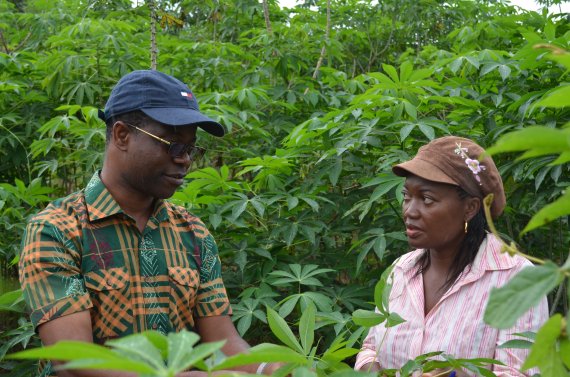Adiele carried out field studies on six different locations in West-Africa over a two-year timespan. She will defend her thesis on 30 June, under supervision of promotor Ken Giller, professor of Plant-based Production Systems. One of the opponents is WUR president Louise Fresco, who also obtained her PhD in Wageningen on cassava research in Africa long ago.
The cassava (Manihot esculenta Crantz) is an important food crop, as it contains many carbohydrates. It is cultivated in 40 of the 52 sub-Saharan countries in Africa, but the yield is generally low. Better growing conditions and nutrient management could increase the yield to 35 tonnes per hectare annually, studies by Adiele and her colleagues show. The combination of the fertilisers nitrogen, phosphate and potassium, in particular, led to better harvests. The yield gap between potential and actual yield appeared to be larger than expected. It was especially the poor soil quality, average planting material and bad weed management as well as the wrong fertilisers that caused the unsatisfactory harvests.
Nonetheless, cassava is an excellent alternative to wheat farming, Adiele says. This is because the cassava utilises the nutrients more effectively, produces more crop per kilo nitrogen and is more resilient against unfavourable weather conditions. If farmers become more skilled in the cultivation and fertilising of the drop, cassava could play an important role in the African food supply. Moreover, Adiele recommends the fortification of value chains that process cassava into cakes, porridge and chips.

